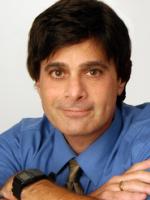Wednesday, December 8, 2004 - 12:30pm to 2:00pm
Mississippi Room, Coffman Memorial Union
We now recognize that stem cells not only show the ability to develop into different cells and repair the body throughout life, but can also be isolated and used later in life for therapeutic purpose. The attendant ethical debates include: (a) when does human personhood begin; (b) is it more ethical to use embryonic stem cells that have already been isolated and what should we do if those prove insufficient for future research and therapies; (c) should stem cell research be done in the private or public sector and with what federal funding; (d) when is it ethical to try novel therapies on humans in the face of imperfect knowledge; (e) can biological material be owned and patented; (f) how can stem cell therapies be made affordable? Prof. Snyder argued that better knowledge of fundamental biology will help resolve some of these issues. Biology itself may define common ground where divergent views on these issues can meet to reach consensus.
Commentators:
Prof. Paul Tuite, MD
Parkinson's Disease and Movement Disorders Clinic, University of Minnesota
Prof. Jeffrey Kahn, PhD, MPH
Center for Bioethics, University of Minnesota

Evan Snyder, MD, PhD, is Professor and Director of the Program in Development & Regenrative Cell Biology (the Stem Cell Program) at the Burnham Institute, coordinator of the Southern California Stem Cell Consortium, a faculty member in the Department of Pediatrics, and Director of the Basic Science Program in Neonatology at the University of California, San Diego. His research focuses on stem cell biology (including human), neurobiology, animal models of disease states, and transplantation. Dr. Snyder is also board certified in pediatrics, neurology (with special competence in children), and neonatology (newborn intensive care) having completed his clinical post-graduate training at Harvard Medical School and Children's Hospital-Boston. He continues to be clinically active in all these disciplines. He received PhD in neurobiology at the University of Pennsylvania and completed a postdoctoral fellowship in the Dept. of Genetics at Harvard Medical School.